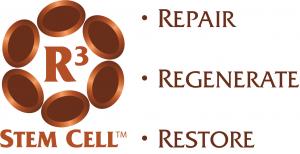03 Feb How to Deal With a Congestive Heart Failure
Heart failure is a severe condition that affects the heart and causes a reduction in the blood delivered to major organs, and the entire body. It’s a mechanical problem that occurs when the heart muscle becomes less able to contract and as a result, limits its ability to fill with blood.

When heart failure happens, the heart is unable to keep up with the body’s demand for blood circulation, and blood will return to the heart much faster than it’s pumped out. This causes congestion of blood in the body. This issue will mean that the different organs in the body will not have enough oxygen-rich blood to properly function.
Of course, the body will try to compensate in many ways. The heart will attempt to beat faster and take less time to refill after it contracts. However with time, less blood will circulate in the body, and the extra effort made by the heart will cause palpitations. Again, the heart will enlarge in order to make room for the blood. The lungs will also get filled with fluid, and cause shortness of breath. Whether it’s treated or not, congestive heart failure is typically progressive and may get worse with time.
Congestive heart failure is quite a common ailment and it has been diagnosed in over 5 million Americans. It’s even more common with patients that are over 65 years. It’s also a leading cause of death in these older patients.
Treatment of congestive heart failure
The treatment option that’ll be used will depend on the type and stage of the heart failure, and also any underlying conditions that the patient may be going through. Currently, heart failure can only be managed with adequate therapy. The treatment options available help to relieve the symptoms and slow down the possibility of further damage. The major treatment plans include;
- Lifestyle changes: A lifestyle change is more of a preventive measure to reduce the chances of developing heart failure. These changes include avoiding salt so that fluid can be retained, and avoiding the use of caffeine to reduce the chances of heartbeat irregularities. Doctors will typically advise how much fluid to take in and the kinds of drinks to take in.
- Medications: Several types of medication can be prescribed to help manage heart failure. They include;
- Vasodilators for the expansion of blood vessels, easy blood flow, and reduction of blood pressure.
- Diuretics for balancing fluid retention.
- ACE inhibitors, digitalis glycosides, anticoagulants or antiplatelets, beta-blockers, and tranquilizers.
- Surgical procedures: Surgery may be required in severe cases to open blocked arteries, or to replace heart valves. A heart transplant is however the last option when other options have failed or aren’t viable.
Stem cell therapy for heart failure
Researchers have also found that stem cells can be used as a treatment option to repair heart failure and manage heart function. Mesenchymal stem cells, adult stem cells, and pluripotent stem cells are viable options for the treatment of heart failure.

The R3 Stem Cell centers provide proven stem cell-based treatment for cardiac disorders such as congestive heart failure. Our professional team of regenerative medicine experts have years of experience in the field and have helped hundreds of patients get their life back from debilitating and excruciating conditions. If you or a loved one is suffering from any heart disease, please book an appointment with us today to finally say goodbye to the pain.










Sorry, the comment form is closed at this time.